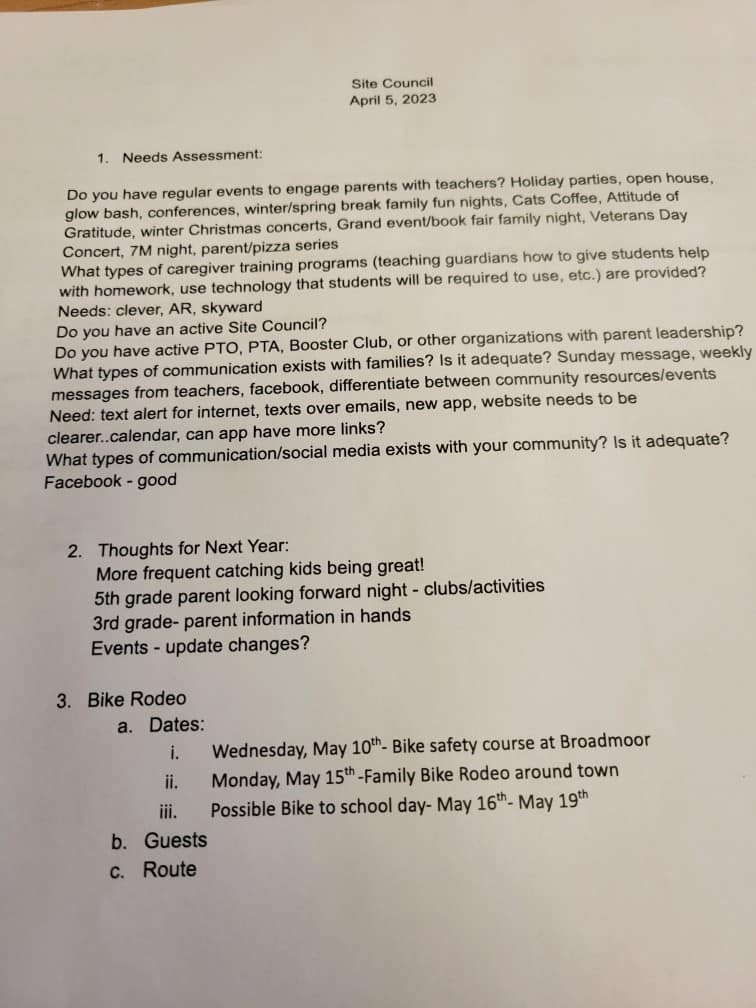For the third consecutive year, a review of 25 school districts’ adherence to the school needs assessment law underscores why Kansas has a deepening achievement crisis – the public education system thumbs its nose at every accountability effort.
State law requires local school boards in Kansas to annually identify barriers preventing students from being proficient in reading and math and determine the budgetary changes needed to overcome those barriers. A 2021 investigation of 25 districts found no evidence that the school needs assessment process took place, and some officials didn’t seem aware of the legal requirement. The Kansas Association of School Boards told the Senate Education Committee that districts complied with the law, but no records existed because education officials didn’t believe the law required them to document their work.
Legislators didn’t buy that excuse. They amended the law in 2022, requiring school boards to answer three specific questions for each school, incorporate the information in their summer budget process, and publish the results on district websites. But subsequent examinations of 27 districts found none complied with the law in 2022.
We checked again last month with the 2023 budget process underway and, to no one’s surprise, found blatant disregard for the school needs assessment law.
Superintendents don’t allow board members to conduct school meetings
K.S.A. 72-1163 says, “Each year the board of education of a school district shall conduct an assessment of the educational needs of each attendance center in the district.” The Sentinel submitted Open Records requests for proof that district officials allowed school board members to conduct the meetings in advance of the 2023 budget preparations, but no such evidence was produced.
Thirteen districts – Shawnee Mission, Topeka, Salina, Hays, Colby, Hutchinson, Leavenworth, Independence, Goddard, Derby, McPherson, Auburn-Washburn, and Eudora – claim that the school board was involved, maintaining that spending a few minutes reviewing staff-prepared reports at a board meeting constitutes compliance. But that is not “conducting” meetings. At the very least, board members should actively participate in discussions with teachers and principals so they hear concerns directly rather than being filtered through district management. The law requires school boards to review and sign off on the report for each school, but that is separate from the requirement to “conduct” meetings.
Ten districts – Wichita, Kansas City, Blue Valley, Dodge City, Liberal, Pittsburg, Geary County, Lansing, Manhattan, and Newton – openly admitted that school board members did not attend needs assessment meetings.
The Maize district hired an attorney to respond to the Open Records request. Calvin Rider, with Fleeson, Gooing, Coulson & Kitch, L.L.C., provided documentation of some board members being invited to unrelated committee meetings (Safe Work Environment, Discipline Transparency, Benefits Advisory) and to District Site Council (DSC) meetings. Email exchanges regarding DSC meetings mention a review of the District Needs Assessment, but the content appears unrelated to the statutory requirements to identify barriers to achieving proficiency and the budgetary changes needed to overcome barriers. The proposed agenda indicates that board members are not involved in the school needs assessment process, saying, “Buildings will review needs assessment for school in their own meeting.”

No information on “Glows & Grows” could be found on the district website.
Louisburg Superintendent Brian Biermann said, “School board members are on each Site Council, and each school had Site Council provide input on each building’s Needs Assessment as they completed their individual Needs Assessment.” He suggested we contact four board members for confirmation, but their replies did not indicate board participation in past meetings.
Board member Jennifer Goodman said she was present at the April 5, 2023 site council meeting “when we completed the needs assessment for that building with the principal, teachers, and parents. We discussed possible barriers for BES for the upcoming school year. Attached is the agenda for the meeting.”
However, the agenda doesn’t mention identifying barriers to achieving proficiency and budgetary charges to overcome them. The topics under Needs Assessment include engaging parents with teachers, caregiver training programs, and communicating with parents; those are worthy discussions but not the issues required by state law.
doesn’t mention identifying barriers to achieving proficiency and budgetary charges to overcome them. The topics under Needs Assessment include engaging parents with teachers, caregiver training programs, and communicating with parents; those are worthy discussions but not the issues required by state law.
Board member Lanny Smith said, “We did discuss the Middle School needs assessment at the April site council,” but he didn’t provide the agenda for that meeting.
Andy Melton said he was assigned to Rockville Elementary for review and provided a blank copy of the needs assessment form but didn’t specifically say he discussed needs with teachers and principals.
Jo Erin Stuteville said she would attend the May site council meeting and “will be specifically conducting an assessment of barriers and budgeting ideas for the coming year.” We followed up after the meeting to request information on the discussions, but Stuteville did not respond.
Student achievement won’t change until adult behaviors change
Three straight years of ignoring state law reinforce what author AJ Crabill says in Great on Their Behalf – Why School Boards Fail, How Yours Can Become Effective – student achievement won’t change until adult behaviors change.
Some school board members weren’t aware of their statutory obligation and are now asking their superintendents to be allowed to conduct school needs assessments. And that is welcomed by some, according to Ward Cassidy, Executive Director of the Kansas School Board Resource Center (KSBRC).
“I have been amazed by the number of superintendents who are not even aware of the law. I have also been impressed with the number of school board members who, when understanding the law, want to be more involved in the process of improving student achievement.”
KSBRC, which, like the Sentinel, is owned by Kansas Policy Institute, conducts training sessions for school board members on utilizing the school needs assessment meetings to build effective budgets. The next sessions will be held June 6-8 in Wichita, Pittsburg, and Lawrence.
It’s encouraging that some superintendents and school board members want to improve outcomes and comply with the school needs assessment law. But legislation that imposes a consequence for failure to comply, possibly even legal action, is needed to ensure that every school board is allowed to help get students the education they deserve.



